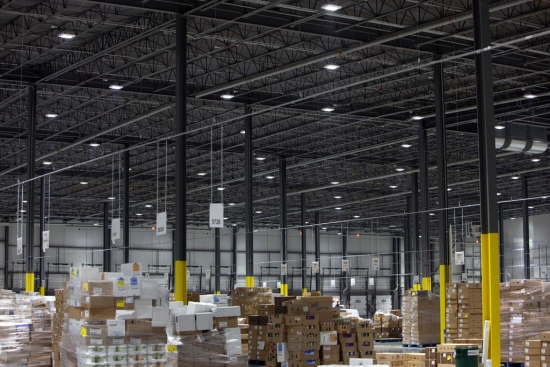The Green Deal, which comes into force today, is a package of measures introduced by the government to help it reach its carbon reduction targets. It is designed to enable owners or occupiers of residential and commercial property to make energy-saving improvements without having to pay up-front.
These improvements range from simple insulation and draught proofing to renewable energy technologies like solar panels and wind turbines. But what are the implications for commercial landlords and tenants?

LED lighting is 69% more energy efficient than conventional lighting
First of all, it’s important to note that a landlord must seek a tenant’s permission before signing up to the Green Deal. Likewise a tenant must get the permission of the landlord before joining the scheme.
Under the conditions of the Green Deal the anticipated savings of the improvements must be equal to or greater than the cost of repayment over the term of the plan. This is called the Golden Rule.
The Green Deal involves four stages:
The initial step will be an assessment of the property by a Green Deal advisor who will discuss the improvements that can be made and calculate the savings they will produce.
Following the assessment a Green Deal provider will explain the finance and arrange for the work to be carried out. A landlord or tenant can seek quotes from as many providers as they wish.
The chosen provider will instruct a Green Deal installer to complete the agreed improvements. All Green Deal providers and installers are required to conform to a code of practice laid down by the Department of Energy and Climate Change (DECC).
Repayment will be made as a supplement to the electricity bill over the specified payback period which the energy supplier will pass on to the Green Deal Finance Company (GDFC).
Commercial property landlords have expressed a number of concerns regarding the Green Deal to the DECC. In particular they have raised the following issues;
The Green Deal also has possible implications on future leases. This is because on April 1 2018 new legislation will prevent the letting of properties with an unfavourable Energy Performance Certificate (EPC) rating until landlords have carried out satisfactory improvements.
This raises a number of questions. For example;
Furthermore, a tenant signing up to the Green Deal will need to obtain assurances from the landlord that improvements carried out to the property will not have any impact on the rent review. They will also need to be certain that the work will not have to be removed at the end of the lease.
Finally, Green Deal regulations oblige anyone letting or selling a commercial property to disclose details of the plan to prospective tenants and buyers.
It is not anticipated that the Green Deal will have any significant impact on the commercial property industry until we get closer to 2018. At that point it is possible that a two-tier market may emerge in which energy efficient properties will be at a premium and inefficient ones will be at a disadvantage.
Previous Post
Rolls Royce Defence Plant Announces Job Losses